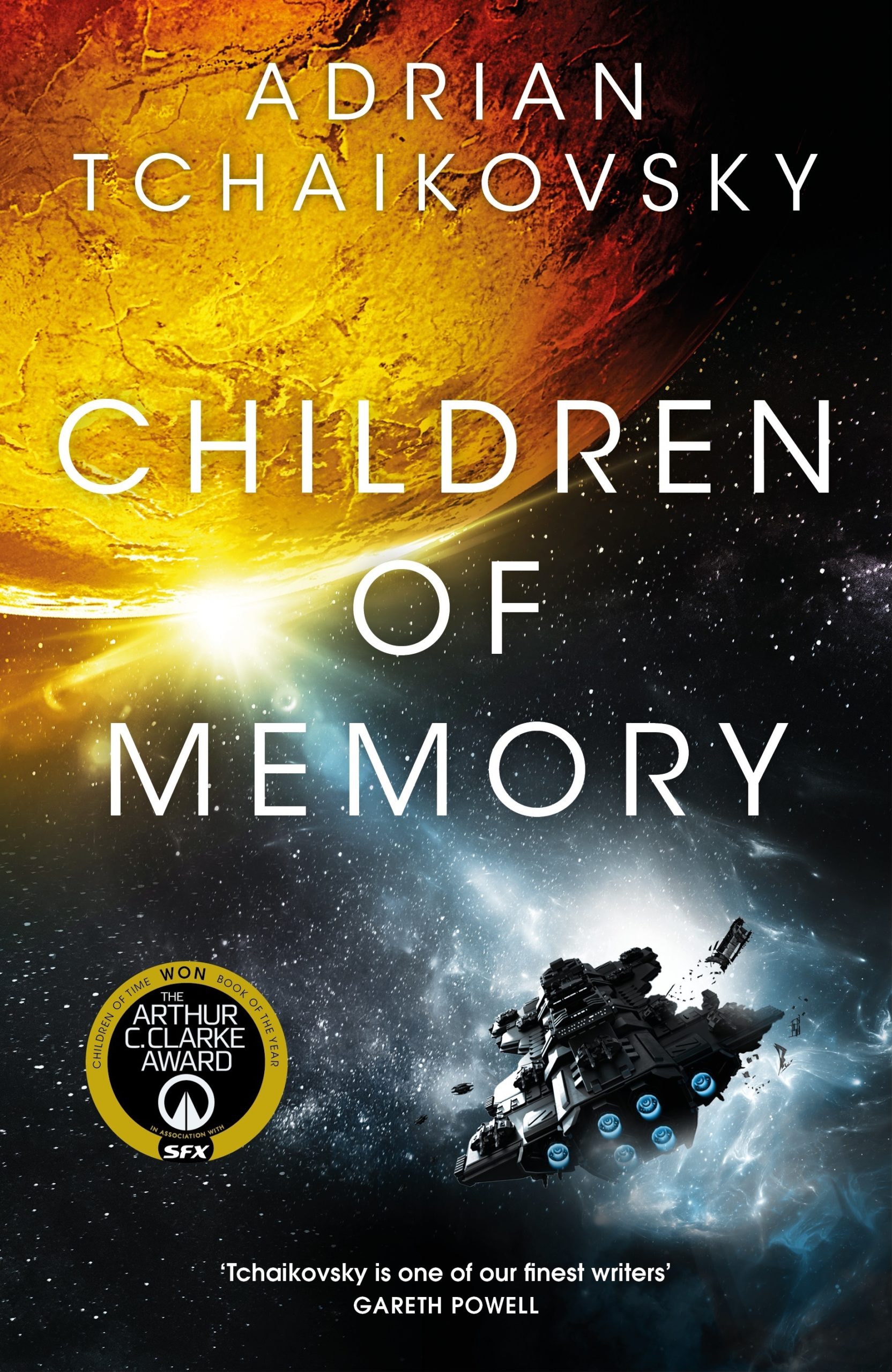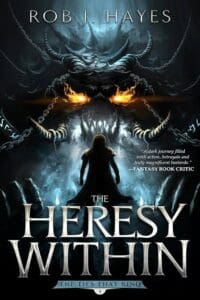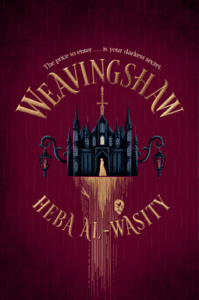
Synopsis
The modern classic of space opera that began with Children of Time continues in this extraordinary novel of humanity’s battle for survival on a terraformed planet.
Earth failed. In a desperate bid to escape, the spaceship Enkidu and its captain, Heorest Holt, carried its precious human cargo to a potential new paradise. Generations later, this fragile colony has managed to survive, eking out a hardy existence. Yet life is tough, and much technological knowledge has been lost.
Then strangers appear. They possess unparalleled knowledge and thrilling technology – and they’ve arrived from another world to help humanity’s colonies. But not all is as it seems, and the price of the strangers’ help may be the colony itself.
Review
Over the past few years, I’ve read through many of Adrian Tchaikovsky’s books. I’ve been slowly reading through his fantasy epic, the Shadows of the Apt all year. But what first got me into his books was Children of Time. Still my favorite sci-fi book of all time, I’ve been anticipating this third book in the series ever since it was announced.
While I enjoyed the second in the series, Children of Ruin, I found it a bit too similar to the first book and it didn’t grab me the way the first one did.
I’m happy to announce that Children of Memory exceeded my expectations and was a wild ride from the front to back. It may not be perfect, but it is a great science fiction novel with signature Tchaikovsky creativity all wrapped in a great philosophical question.
The story opens with another colony ship looking for terraformed worlds in hope of a new life – just like in the first novel. However, on the discovered planet, Imir, life is hard, and it takes every bit of strength to even grow the most basics of food. We follow a young girl Liff who lives in the colony and dreams of meeting witches and having fairy tale adventures. Eventually she interacts with new strangers from who have come from out-of-town farms including her school teacher Miranda.
In another timeline, we loosely pick up threads from Children of Ruin. A new space ship with a crew of Portia, Paul, Fabian, newcomer Miranda and the ever present AI, Averna Kern, has set out in search of other planets which could contain life. They discover Imir and discuss how they should proceed in intervening at a failing colony.
What proceeds from there would be too much of a spoiler to say much more. The plot bounces all over the place in both time and location while the story is slowly unveiled. Many parts of the novel can be confusing as you’re introduced to new information that doesn’t seem to fit with what has been previously said. Thankfully, the third act brings everything together with many interesting twists and developments.
What I can talk about are the characters. Most of the focus is split between Liff and member of the space crew, Miranda. Miranda is a Human (capital H) that has been integrated into the Nod hive mind conciseness (see Children of Ruin). Her arc is the standout of the book and watching her struggle between her Human instincts and her Nodian desire to explore by consuming is fascinating to watch unfold.
Liff on the other hand, experiences the world in a much more primitive state. Seeing her interact with the more sci-fi moments and visualizing them as fairy tale stories is a great use of character perspective. It’s very reminiscent of Tchaikovsky’s Elder Race, which if you haven’t read, I highly recommend.
Seeing the distinctions between Liff and Miranda and how they experience the world is a highlight of the first half of the novel. Eventually, as their paths cross, the relationship built between them leads to some poignant and emotional moments.
Now, this wouldn’t be a Children book without a new human-like animal uplift species. While we’ve seen Spiders and Octopuses, Memory introduces us to Covids, or Raven like birds who may or may not just be talented mimickers. The two Corvids we follow in Memory are Gothi and Gethli and they make up the third POV for the novel. Their dialogue is particularly memorable and the new dynamic they bring to the worldbuilding is very enjoyable.
The last character I’ll highlight is Averna Kern. The scientist turned AI continues to be a fascinating character who gets a bit more development this novel. And her story leads us to what lies at the heart of Children of Memory.
(Minor spoliers for the themes and end of book elements follow so if that puts you off, skip to the end). Much of this book is focused on a complicated philosophical question: what does it mean to be sentient? We have several different perspectives and approaches to this question throughout the book, but it all circles around to this thought. It’s a thought that has stuck with me after reading and I look forward to discussions about it.
However, that does lead me to a few issues I had with this book. Much of the philosophy and twists are towards the end of the novel. Some of the reveals that occur in the back half make the preceding pages feel like a bit of a waste. Now, I enjoyed reading through the whole book, but in hindsight, they became a little less necessary.
Along the same lines, much of this novel is confusing when it comes to plot and its structure. While this is eventually explained in full, it leads to a bit of a frustrating reading experience at times where I was turning back to earlier pages to see if I missed something when I hadn’t.
These are minor complaints for me, but I can see how some could find this more frustrating and tarnish the experience.
At the end of the day, the best Tchaikovsky books feature moments of creativity in worldbuilding, interesting character moments, and are all wrapped in an interesting thought experiment. Children of Memory has all that and more. If you’re a Tchaikovsky fan, I highly recommend picking this one up when it comes out early next year.
*special thanks to the publisher for a review copy*








The author tends to follow the Hamilton pattern of painting himself into z corner. The constant delivery of loose ends is frustrating to say the least. As I grew up on the well developed trials of the chronicles of Thomas Covenant (or of Linden Avery) from the very start, I tend to look for differences within books by an author. Here we see repeated ideas across stories. Ants,insects, repetition. See Shards of…. I gave up on the Apt series on book 8. Not sure whether I will finish this. Time to go onto The Killing God sadly.
I experienced the same feeling of disorientation during the first half of the book , the loose ends disturbed me but then it all came beautiful together in the end and opened up like a lucid dream . It is just WOW …
Yeah I love the idea of it being like a lucid dream. Felt that way for sure. Glad you enjoyed it!